- Eicher Motors
- Royal Enfield
- Volvo Eicher Commercial Vehicles
- Q2 FY25 results
- growth
- global footprint
- new models
Eicher Motors Reports Best Ever Q2 Revenue From Operations
- By MT Bureau
- November 14, 2024
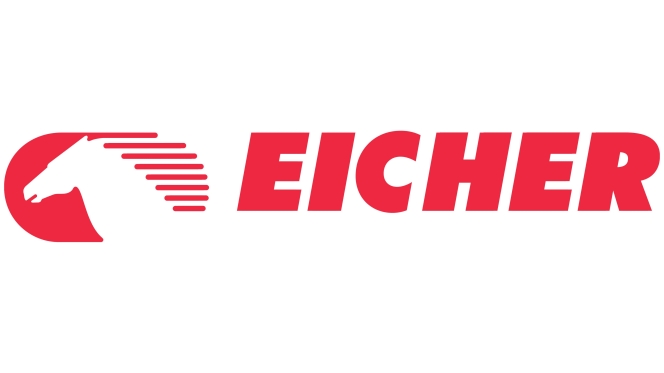
Eicher Motors Limited (EML) – the listed parent of Royal Enfield apart from being a partner in Volvo Eicher Commercial Vehicles (VECV), a joint venture commercial vehicle unit with Volvo – has reported its best ever Q2 FY2024-25 with a revenue of INR 42.63 billion from operations. It was INR 41.15 billion in the corresponding period of FY2023-24.
The EBITDA during the respective period was INR 10.88 million as compared to INR 10.87 million in the corresponding quarter last fiscal. Profit After Tax was INR 11 billion, an increase of 8.3 percent as compared to INR 10.16 billion during the same period last year.
During the quarter, Eicher Group company Royal Enfield recorded sales of 2,25,317 motorcycles as compared to 2,29,496 motorcycles sold during the same period in FY2023-24.
For Q2 FY 2024-25, VECV’s revenue from operations was INR 55.38 billion, up by 8.0 percent over the previous year’s revenue of INR 51.26 billion. EBITDA for the second quarter was INR 3.95 billion as compared to INR 4.02 billion last year.
Profit After Tax (PAT) stood at INR 2.09 billion as against INR 1.87 billion last year. VECV recorded sales of 20,774 vehicles in the second quarter over 19,551 vehicles last year.
Siddhartha Lal, Managing Director, Eicher Motors Ltd, mentioned, “During this quarter, we have continued to sustain the momentum both at Royal Enfield and VECV. At EICMA, earlier this month, we launched two motorcycles on our 650-Twin platform; the Bear 650, and the Classic 650. In addition to this, Royal Enfield marked its foray into electric mobility with a new EV brand - the Flying Flea. With an intent to disrupt and grow the electric motorcycle segment, we are approaching it with the same singularity, focus and unconventionality with which we have grown and energized the global mid-size segment over the last several years. Under the Flying Flea we will have a portfolio of differentiated electric motorcycles for city+ mobility. On the commercial vehicle front, VE Commercial Vehicles delivered its best Q2 ever, with strengthened market shares in truck segments. This is commendable against the backdrop of lower industry volumes as compared to Q2 of last year.”
B. Govindarajan, CEO, Royal Enfield and Whole-time Director of EML, said, "This quarter we launched two stellar motorcycles - the Guerrilla 450 and the 2024 Classic 350 in an all-new avatar and response to both these motorcycles has been remarkable. We have also made significant progress on expanding and strengthening our footprint outside India as we debuted the brand in Bangladesh with our new flagship store in Dhaka, and a manufacturing and assembly unit in the country. We are also setting up a second CKD in Brazil early next year. Basis the strong legwork that we put in during Q2 this year, we were able to achieve a very special milestone for Royal Enfield in terms of our festive sales performance in October. We outperformed all our previous monthly sales performance and achieved over 1,00,000 sales in a single month. These initiatives underscore our commitment to our long-term strategic goals and to continue delivering pure motorcycling experiences across the globe.”
Speaking on the performance, Vinod Aggarwal, MD and CEO, VECV, said, “VECV delivered its highest ever second quarter sales during Q2 FY25 growing 6.2 percent over Q2 FY24 and attaining leadership in the Light and Medium Duty (LMD) segment during the quarter. This growth was against a drop in CV industry volumes of 10.8 percent in the same period and stands as a testament to our broad product range backed by fast-expanding network coverage focused on delivering uptime to customers. Margins remained under pressure in a competitive market as we successfully continued to invest in growing our heavy-duty truck presence. We took another step in our sustainability journey, signing a MoU for deployment of 500 Eicher Pro 6055 LNG trucks.”
Royal Enfield forayed into the EV space by announcing the launch of its completely new electric vehicle brand, Flying Flea at EICMA show in Milan, Italy, recently.
The debut featured two models – the Classic-styled Flying Flea C6 and the Scrambler-styled Flying Flea S6.
The two-wheeler company also revisited its legacy with two new models on the 650 Twin platform – the Bear 650 (a robust scrambler, designed for riders who follow their instincts, featuring versatile capabilities to enhance the riding experience) and the Classic 650 powered by the celebrated 650 Twin engine for a ride that is both swift and elegant.
Strengthening its global footprint, Royal Enfield, in n the SAARC region, commenced operations of its Manufacturing Unit (Category 2) and flagship showroom in Bangladesh. The facility will engage in local production and assembly of four flagship models – Hunter 350, Meteor 350, Classic 350 and Bullet 350 specifically for the Bangladesh market.
Royal Enfield has announced its intent to set up a new CKD unit in Brazil by January 2025 which will help diversify its operations and expand its presence in the automotive market.
- Skoda Auto Volkswagen India
- SAVWIPL
- Kylaq
- H D Kumaraswamy
- Union Cabinet Minister of Heavy Industries and Minister of Steel
- Piyush Arora
Skoda Auto Volkswagen India Crosses 50,000-Unit Production Milestone For Kylaq SUV
- By MT Bureau
- January 27, 2026
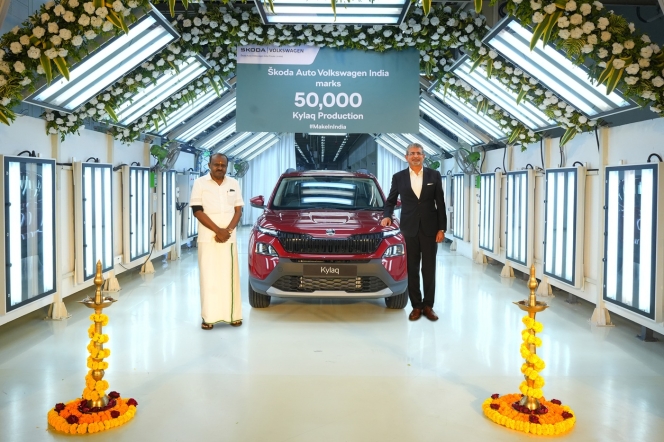
Skoda Auto Volkswagen India (SAVWIPL) has achieved a new production milestone of rolling out 50,000 units of the Skoda Kylaq from its Chakan facility.
The Kylaq, the company stated, has contributed 36 percent to the Group’s YoY growth in 2025. It achieved this volume by expanding its operations and increasing the use of domestic components.
To support the production of the Kylaq, SAVWIPL increased the capacity of the Chakan plant by 30 percent. The vehicle is built on the MQB-A0-IN platform, a chassis architecture designed for the Indian market. The group has focused on localisation and the development of a local supplier network to support its manufacturing output.
The milestone follows 25 years of the group's presence in India, during which it has developed an integrated ecosystem and a local talent pool. By increasing production and localisation, the company aims to support the government’s manufacturing initiatives while deepening its engineering and sourcing capabilities within the country.
H D Kumaraswamy, Union Cabinet Minister of Heavy Industries and Minister of Steel, said, “I congratulate Skoda Auto Volkswagen India on achieving this production milestone and for their continued commitment to the ‘Made in India’ initiative.”
Piyush Arora, MD & CEO, Skoda Auto Volkswagen India, said, “The 50,000‑unit milestone for the Kylaq reflects the deep trust and affection our customers have shown for this product. Built on the proven MQB‑A0‑IN platform, the Kylaq’s success is a powerful validation that vehicles designed in India, both for India and the world, continue to earn admiration and confidence from customers domestically and globally.”
Hindalco Commissions INR 45 Billion Investment To Manufacture FRP & Battery Grade Aluminium Foil In Odisha Facility
- By MT Bureau
- January 27, 2026
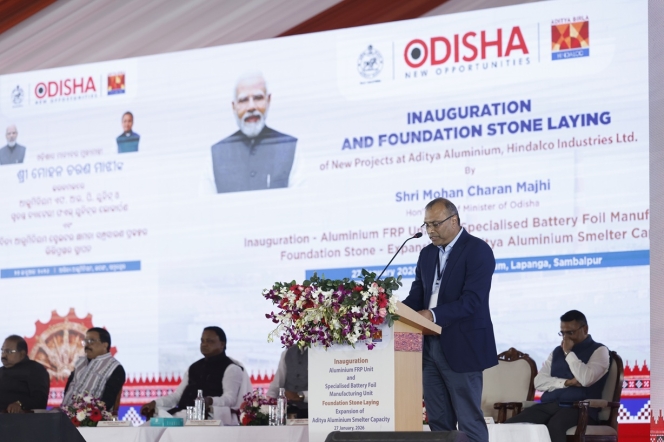
Hindalco Industries has announced an INR 210 billion expansion of its aluminium smelter in Sambalpur, Odisha. The project will add 360,000 tonnes per annum of capacity to the Aditya Aluminium complex. Additionally, the company has commissioned a manufacturing facility for flat rolled products (FRP) and battery-grade aluminium foil following an investment of INR 45 billion.
The facilities form part of a growth programme involving INR 370 billion of planned expenditure in Odisha. The battery-grade foil plant is intended to provide raw materials for the production of lithium-ion cells, with a capacity to support 100 GWh of manufacturing. The expansion of the FRP unit aims to reduce India’s reliance on imported flat-rolled aluminium, which currently accounts for 40 percent of domestic consumption.
The smelter expansion incorporates plans to use round-the-clock renewable energy for a portion of its power requirements. This project connects upstream resources with downstream manufacturing, linking bauxite mining and alumina refining to the production of foil and high-grade materials. The company expects the next phase of investment to create 15,000 jobs in the region, adding to its current workforce of 23,000 in the state.
Kumar Mangalam Birla, Chairman, Aditya Birla Group, said, “India’s manufacturing growth depends on integration, value addition and sustainability. Through Hindalco, we are building a fully integrated aluminium ecosystem that spans from upstream resources to high-value downstream products. Our long-standing partnership with Odisha continues to play an important role in this journey. This strategy strengthens India’s self-reliance, supports critical sectors, and accelerates the nation’s transition towards advanced, sustainable manufacturing.”
Satish Pai, Managing Director, Hindalco Industries, added, “The FRP expansion and smelter growth at Sambalpur exemplify our integrated upstream–downstream growth strategy. This enables Hindalco to deliver high-quality aluminium solutions across packaging, defence, electric mobility, renewable energy and advanced manufacturing, positioning us strongly to support India’s industrial ambitions while creating long-term value.”
Hindalco’s roadmap in Odisha includes the Kansariguda alumina refinery, the Meenakshi coal mine, and units for white fused alumina. The company has invested over INR 250 billion in the state over the last 15 years. These developments are part of a wider INR 550 billion capital expenditure plan across India.
Chery To Acquire Nissan’s South Africa Manufacturing Assets
- By MT Bureau
- January 26, 2026
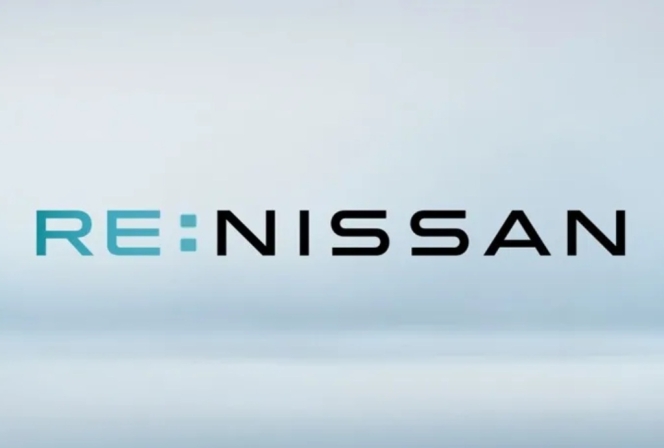
Japanese automaker Nissan and China’s Chery have reached an agreement for the acquisition of Nissan’s manufacturing facilities in Rosslyn, South Africa, which is subject to regulatory approvals and the fulfilment of specific conditions.
As per the understanding, Chery will purchase the land, buildings and associated assets, including the stamping plant, in mid-2026. Chery will offer employment to the majority of Nissan’s current staff at the site on terms and conditions similar to their existing contracts. The move follows a period of impact on the utilisation and viability of the plant within Nissan's global operations.
Despite the sale of the production facility, Nissan will maintain its commercial presence in South Africa. The company plans to continue its sales and service operations and has scheduled several vehicle launches for the 2026 fiscal year, including the Nissan Tekton and Nissan Patrol.
The acquisition allows the Rosslyn site to remain an active part of the South African automotive manufacturing sector. The preservation of the facility also aims to maintain opportunities for the existing local supplier network that services the plant.
Jordi Vila, Nissan Africa President, said, “Nissan has a long and proud history in South Africa and has been working to find the best solution for our people, our customers and our partners. External factors have had a well-known impact on the utilisation of the Rosslyn plant and its future viability within Nissan. Through this agreement we’re able to secure employment for the majority of our workforce thereby also preserving opportunities for our supplier network. This move also ensures that the Rosslyn site will continue contributing to the South African automotive sector.”
- Neolite ZKW Lightings
- Tata Motors
- Stellantis
- JSW MG Motor India
- Daimler India Commercial Vehicles
- Piaggio Vehicles
- Won Yong Hwang
- ZKW Group
- Rajesh Jain
- Rajesh Soni
Neolite ZKW Opens Automotive Lighting Facility In Pune
- By MT Bureau
- January 23, 2026
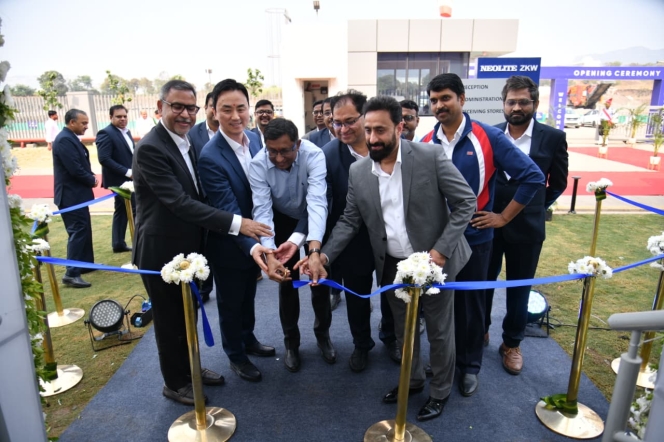
Neolite ZKW Lightings held a commemorative ceremony on 23 January 2026 for its new manufacturing plant in Pune, Maharashtra. The facility, which began operations in December 2025, is situated near the Mumbai-Pune-Nashik-Aurangabad automotive cluster. This location allows the company to manage inventory and provide services to customers including Tata Motors, Stellantis, JSW MG Motor India, Daimler India Commercial Vehicles and Piaggio Vehicles.
The facility includes an independent design centre featuring simulation software, optical design tools and 3D modelling capabilities. This centre supports product development, prototyping and validation to meet global regulatory standards. The Pune plant focuses on manufacturing processes such as moulding, surface treatment and assembly for lighting products and components.
Neolite ZKW Lightings produces lighting solutions for passenger vehicles, commercial vehicles and two-wheelers. Its portfolio is powertrain agnostic, supplying components for both internal combustion engine vehicles and electric vehicles. Following the commencement of the Pune facility, the group intends to focus on opening its next plant in Kancheepuram.
Won Yong Hwang, CEO, ZKW Group, said, “India continues to emerge as a strategic market for the global automotive industry. Neolite ZKW’s expansion in Pune represents a positive step toward advancing next-generation automotive lighting solutions, and we look forward to continued collaboration in technology and innovation”.
Rajesh Jain, Chairman and Managing Director, Neolite ZKW Lightings, said, “Our new Pune plant reflects our commitment to invest in capacity, technology and talent to support the next phase of growth for our customers and for Neolite ZKW. With this facility, we are better positioned to respond timely to customer requirements, drive innovation in automotive lighting, and create employment opportunities in the region. After this, our next focus will be to get our Kancheepuram facility up and running and we are working very hard to get that done”.
Rajesh Soni, CEO, Neolite ZKW, added, “The Pune facility is designed to focus on manufacturing of automotive lighting products and components including moulding, surface treatment and assembly. Further, in line with the shift toward electrification and sustainability, we also offer certain electric vehicle focused lighting products. At the same time, our portfolio is powertrain agnostic that serves both EVs and internal combustion engine vehicles”.







Comments (0)
ADD COMMENT